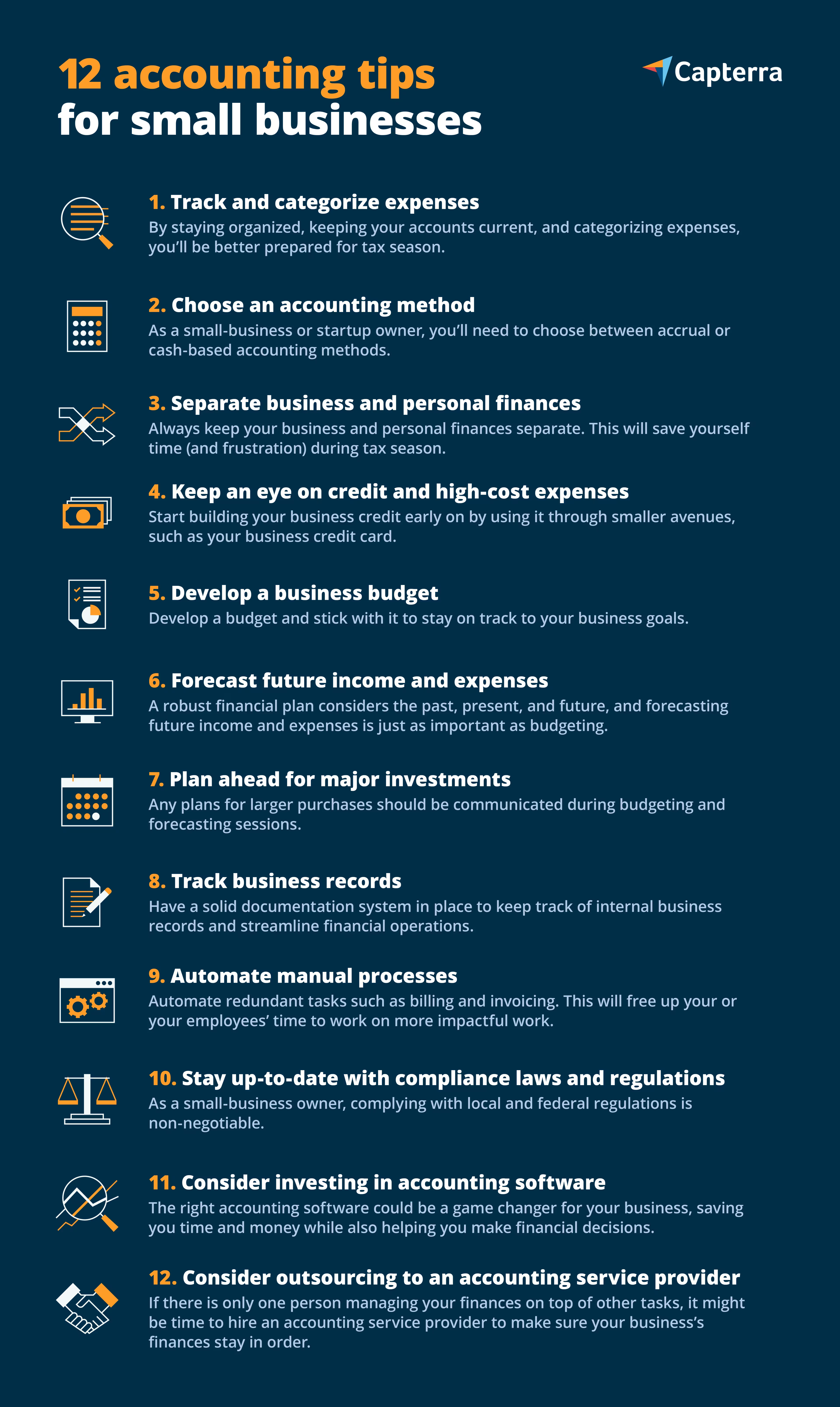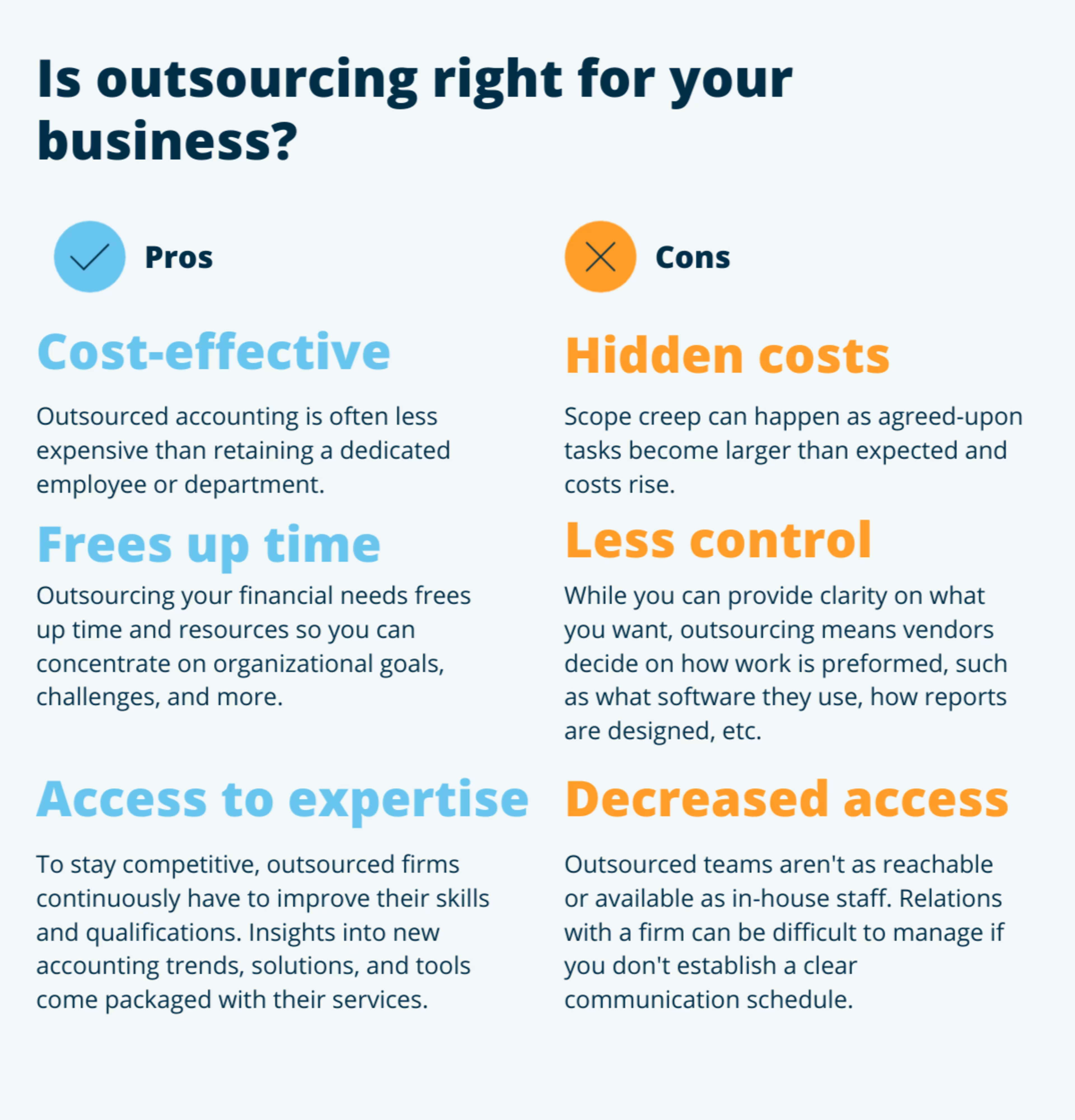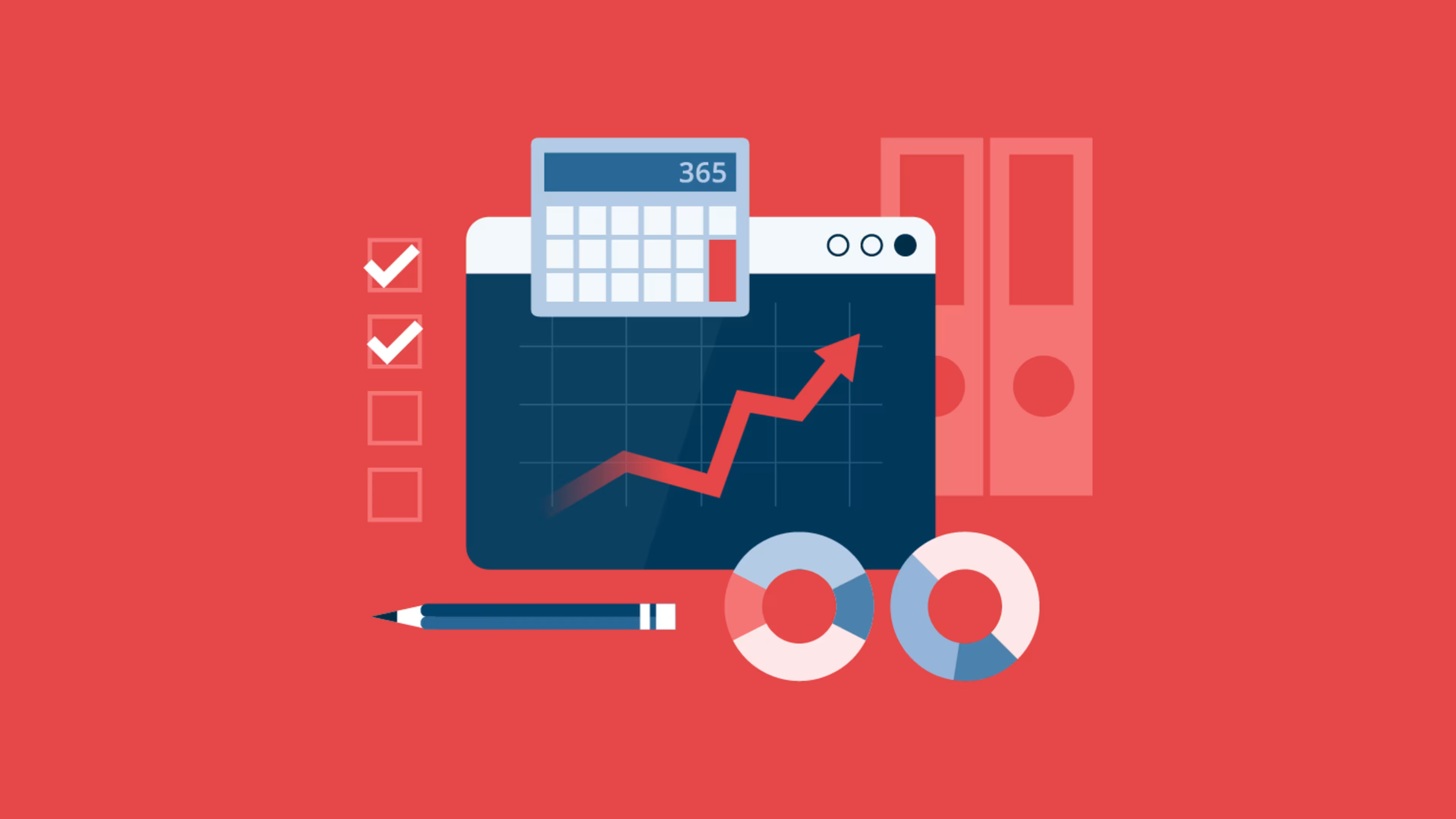Streamline your finances to pave the way for your business’s success.
Having a strong financial plan is essential for any small business or startup, and you probably already have one: According to our 2023 Accounting Shortage Survey*, nearly all (90%) businesses already have a financial plan in place.
Managing financial plans can be very challenging at times—accounting and bookkeeping tasks can take up a lot of time and the consequences of errors, such as miscalculating or forgetting something, can be very high.
As a small-business leader, you might spend a significant amount of time keeping up with accounting and bookkeeping, and you want to find a better way to manage your business’s finances to allow more room for business growth, reduce errors, and get some of your own time back.
/ Meet the expert
Stephanie Heredia[1] is the CEO of Taxes Tampa LLC and an accountant with more than 10 years of experience. We asked her for small business accounting advice and want to share what we learned.
“When running a small business, you realize it truly takes a village to get it off the ground. Having the right team in place is key to keeping the ship running smoothly, while everyone focuses on a shared goal.”


Stephanie Heredia
CEO of Taxes Tampa LLC
12 accounting tips for small businesses
Here are 12 accounting tips and tricks you can use to manage your financial plan and ultimately build a successful business.

1. Track and categorize expenses
When it comes to accounting for small businesses, Heredia knows something that she believes every business owner should know: Tracking and categorizing expenses is one of the main things that can help reduce taxes.
Yet, despite the advantages of this, Heredia says it is also one of the most overlooked parts of accounting.
“Many business owners run expenses through a myriad of accounts (business and personal) and often overlook expenses because they're so displaced, and they forget to turn over every stone,” Heredia said.
However, by staying organized, keeping your accounts current, and categorizing expenses, you’ll be better prepared for tax season.
2. Choose an accounting method
As a small-business or startup owner, you’ll need to choose between accrual or cash-based accounting methods.
What is accrual-based accounting?
In this accounting method, you would report income when it is earned and expenses are recorded when they are incurred, regardless of whether money has been paid yet.
For example, let’s say you receive a bill on August 31, but don’t pay it until September. Under the accrual-based accounting method, this bill would still be listed in your August expenses, because that is when it was received.
Pros: This method creates an immediate snapshot and can reduce tax burden.
Cons: This method can be more complex to manage and can render potentially deceiving figures.[2]
What is cash-based accounting?
In this accounting method, you would report income when the money is received and record expenses when the money is paid.
For example, under this accounting method, if you receive a bill on August 31 but don’t pay it until September, you would list this in your September expenses. This is because that is when the bill was actually paid.
Pros: This method clearly shows cash flow and is very straightforward (i.e., money in, money out).
Cons: This method limits the ability to forecast and provides less long-term clarity.[]
When deciding between these accounting methods, Heredia advises to consider your industry.
“It's more often than not that inventory-heavy industries such as hospitality and eCommerce report both their books and taxes on an accrual basis, while service-based companies such as accountants, attorneys, and consultants report their books and taxes on cash basis,” Heredia said.
One reason for this is because inventory-heavy industries typically have to prepay for expenses (i.e., equipment, products), and doing so on an accrual-basis gives them a tax advantage.
Conversely, small businesses without inventory that sell services rather than products, may consider the cash-based accounting method.
3. Separate business and personal finances
Heredia cannot stress enough the importance of separating business and personal finances. By doing so, you’ll be saving yourself time (and frustration) during tax season.
Combining your business and personal accounts could set you up for unforeseen expenses, errors, missed payments, and tax challenges, especially as your business grows.
“I can't tell you how many times people spend weeks scouring over months and months of bank statements line by line trying to remember transactions from one to 12 months ago,” Heredia said. “It's a gauntlet, but if you remember to use your business accounts exclusively, you can save your future self the headache!”
By keeping your business and personal accounts separate, you’re making bookkeeping, taxes, and other financial management responsibilities much easier for your future self or any accounting professionals you hire in the future.
4. Keep an eye on credit and high-cost expenses
It’s important to start building your credit early on and using it through smaller avenues, such as your business credit card. That way, when you eventually need to take out a loan for a high-cost business expense, you’ll be able to do this through your business’s line of credit and not your personal credit.
As soon as you start creating credit, you should also start monitoring it.
“There's no lack of identity fraud and scams these days, so it's important that you treat your business credit with as much oversight as you do your personal credit,” Heredia said.
By building credit gradually and monitoring your business’s credit, you’re setting your business up for financial success.
5. Develop a business budget
Having a budget helps keep you on track to your business goals and resilient to economic ups and downs. It also helps you grow your business and track important metrics for capacity planning.
For example, by developing a budget and tracking revenue and expenses, you may be able to see when it’s time to hire a new team member or downsize.
“It offers a ton of data when done right, so make sure to take your time when crafting it and always revisit/adjust accordingly,” Heredia said.
6. Forecast future income and expenses
A robust financial plan considers the past, present, and future, and forecasting future income and expenses is just as important as budgeting.
When you forecast future income and expenses, you’re considering what your financial situation may look like in the next accounting period, next year, in two years, and in five years. Forecasting your business’s finances will help you plan for expenses, make more informed financial decisions that are in line with your short- and long-term financial goals, and may help you plan for challenges, such as economic recessions.
Of course, forecasting will look different for businesses across industries and should take into account trends and overseas events that could impact business processes, such as shipping.
7. Plan ahead for major investments
Any plans for larger purchases should be communicated during budgeting and forecasting sessions.
“Sometimes renovating that old food truck is all that stands between you and being profitable,” Heredia said. “Sometimes investing in a joint venture is all that's needed to get your business off the ground. Whatever the investment is, it's important to build it around your foundation first.”
Major purchases and investments can change the trajectory of your business for the better, but they require careful planning beforehand.
8. Track business records
Have a solid documentation system in place to keep track of internal business records and streamline financial operations.
“You will want a process in place for saving important records such as your Article of Organization, your EIN Letter (this only gets issued once so make sure to save it), your By-Laws, and your Governing Documents,” Heredia said.
If your documentation system isn’t already digitized, consider digitizing it to prevent losing or misplacing documents.
9. Automate manual processes
By automating accounting tasks, such as billing and invoicing, you’re not replacing people but rather paving the way for them to spend less time on repetitive tasks and more time doing work that is more impactful to both your business and their personal professional goals.
If you’re new to automation, adopt a gradual approach.
“The best way to do this is to break out your business by department and start creating internal processes that can scale with you as you grow,” Heredia said.
This could be automating parts of the employee onboarding process, billing and invoicing, or expense tracking.
10. Stay up-to-date with compliance laws and regulations
As a small-business owner, complying with local and federal regulations is non-negotiable.
“If you're starting an eCommerce business, it's important to research your state’s sales and use tax laws, as well as Amazon’s sales and use tax laws since they vary,” Heredia said. “Similarly, if you plan on opening a restaurant, it's important to research local licensing laws as well as worker compensation and payroll regulations.”
Be sure to do your own thorough research on laws that apply in your region and for your industry or hire the right accountant to make sure your business is checking all the boxes and doesn’t get hit with surprise fines or lawsuits.[3]
11. Consider investing in accounting software
The right accounting software could be a game changer for your business, saving you time and money while also helping you make financial decisions.
“If you don't have accounting software, you likely don't know your profits or expenses, so it'd be fairly difficult to do any type of tax planning due to the lack of data,” Heredia said.
According to our survey*, most businesses understand the value of technology. This is why 58% of small businesses plan to spend more than $10K on new accounting software alone between 2023 and 2024, especially billing and invoicing software (46%), budgeting and forecasting software (42%), and accounts payable and receivable software (41%).
Accounting software can help you track expenses, manage records, collect data to help with forecasting sessions, automate processes such as billing and invoicing, create reports, and keep business financial data secure.
If you’re interested in investing in accounting software for the first time or are looking to update your existing software, consider browsing our catalog of accounting software platforms to get started.
12. Consider outsourcing to an accounting service provider
Accounting and bookkeeping responsibilities are critical to both the short- and long-term success of your business, and sometimes, these responsibilities might get overwhelming, especially if there is only one person managing them on top of other tasks.
By outsourcing some or all of these tasks to an accounting firm, you could save your business both time and money in the long run, and most businesses recognize these benefits: 71% of surveyed businesses outsource some of their accounting needs, while 65% of businesses require full-time support from firms to handle things such as tax compliance and other complex tasks.*
Accounting firms that specialize in taxes can help you with data entry, minimizing inefficiencies and errors. They can also help you manage processes in bookkeeping, payroll processing, tax planning, and financial reporting, review financial records for discrepancies, design a tax strategy, and assess your business’s overall financial health.

When hiring an accounting service provider, consider the pros and cons of outsourcing accounting responsibilities, as well as your business’s financial needs, budget, and goals to find the perfect fit.
Take control of your business’s financial future
Your business’s success is directly linked to its financial health. By keeping records of bills, invoices, and payments organized, you can ensure your business’s financial health remains robust.
As a small-business owner, don’t try to take on the responsibilities of accounting and bookkeeping alone: Consider investing in a software tool to ease the burden or outsourcing to a trusted, vetted accounting firm that provides the services and expertise you need to secure your business’s financial future.
